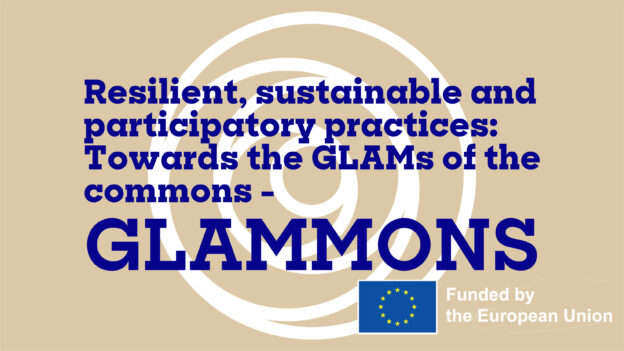
Greece
One of the key national institutions in the Greek Research & Innovation landscape, the General Secretariat for Research & Innovation (GSRI) from the Ministry for Development and Investments works as a research funding agency for research and innovation in all fields including Cultural Heritage.
Research strategies and priorities
The definition of the GSRI research priorities in cultural heritage is ensured through a broad consultation with academic and research centres, as well as stakeholders, communities, civil society, at both national and at regional level. Sectorial platforms are formed by specialists that come from all these fields and the industry, and they have the task to identify gaps, priorities, as well as the progress made so far. It is then communicated to GSRI, who forwardit to the government for approval. As such, GSRI is crucial for forming this Research and Innovation strategy.
In Greece, culture, tourism and creative industries are clustered altogether. This has been particularly highlighted in connection to the cultural and creative sectors and industries and cultural heritage (CCSI-CH) cooperation. Culture, tourism and creative industry is ranked fourth among research fields that receive project-based funding at national level. This is an indication of how important the response from Greek research and industry communities is.
Culture is considered as playing a crucial role for Greece as a transversal domain connected to all the thematic priorities of research and innovation, to the circular economy and the green goals for Europe, digitalization, urban and rural environment. It is deemed as a crucial transdisciplinary field which is important to follow and further boost and promote.
Programmes and calls for cultural heritage
GSRI funds national programmes dealing with cultural heritage, and national infrastructures. Namely, the national research infrastructure Apollonis is a national branch of broader DARIAH and CLARIN networks.
EU joint actions: state of the art and future opportunities
EU Work Programmes interactions with national/regional level
GSRI is involved in EU actions for Cultural Heritage through planning of the research policy, and the promotion of cultural heritage research along with other research thematic areas. GSRI participated in the last call of the Joint Programming Initiative on Cultural Heritage (JPI CH) and fund projects involving Greek partners. GSRI is also part of the network Humanities in the European Research Area (HERA), which deals with the humanities and broader cultural heritage domain, and also participate in the Horizon Europe programme. GSRI funds projects that deal with cultural heritage, and is also part of the discussions and the formation of the Cluster 2 programme committee in Horizon Europe.
From a GSRI point of view, the following European thematic and transversal priorities identified are seen as most relevant: “Sustainable conservation/Safeguarding”, “Territorial/regional development”, “Digital transition” and “Climate change/adaptation”. The “Gender equality” priority is considered as strongly needed, but would need to address broader questions related to social inclusion.
European actions’ added value
In addidtion to funding, the exchange of know-how and good practices, the building of networks, the mobility of researchers, and the strengthening of collaborations in Europe and beyond represent the added value of getting involved in EU actions.
Looking ahead
a discrepancy between national and EU priorities could benefit from a better alignment, specifically the development of rural areas and the engagement with local communities, the links with tourism and the protection of the environment. Intangible heritage is very important for Greek Research and Innovation in Cultural Heritage, and could benefit further strengthening at European level.
Additionally, another issue that would need to be tackled in order to improve European cooperation would be the promotion, accessibility and visibility of the projects’ outputs. It would allow to showcase good practices and allow for larger stakeholders’ engagement.
There is a highlighted Greek specificity pertaining to remote, insular areas’ participation in Cultural Heritage Research and Innovation programmes, which leads to an uneven distribution of funds, projects and stakeholders that are actively engaged in European or national programmes.






